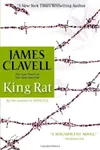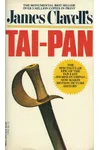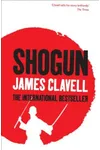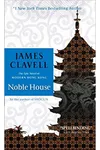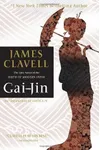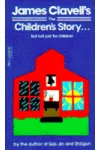Picture an Australian storyteller who spun epic tales of East meeting West, drawing from a life as gripping as his novels—meet James Clavell! Born in 1924, Clavell’s journey from a World War II prisoner to a literary giant captivated millions with his 'Asian Saga,' including the iconic Shōgun. His stories didn’t just entertain—they bridged cultures.
Clavell’s knack for weaving historical drama with human struggle made him a household name. His vivid narratives, rooted in real-world experiences, invite readers into worlds where honor, ambition, and survival collide. Ready to dive into his remarkable life and legacy?
The Making of James Clavell
Born Charles Edmund Dumaresq Clavell on October 10, 1924, in Sydney, Australia, James Clavell grew up in a military family, steeped in discipline and adventure. At 18, he joined the British Army, but his life took a dramatic turn when he was captured by Japanese forces in 1942. As a POW in the brutal Changi prison, Clavell endured horrors that later fueled his empathetic, nuanced portrayals of East-West tensions. After the war, he pivoted to storytelling, starting in film before penning novels that would define his legacy.
James Clavell’s Unforgettable Stories
Clavell’s 'Asian Saga,' a six-novel series, is his crowning achievement, blending meticulous historical research with gripping drama. Shōgun (1975), the saga’s standout, follows an English sailor navigating feudal Japan’s political intrigue. Its rich depiction of samurai culture and cultural clashes made it a global sensation, later adapted into a hit TV series. Tai-Pan (1966) dives into the founding of Hong Kong, showcasing Clavell’s knack for larger-than-life characters. Noble House (1981) continues the Hong Kong saga, blending corporate warfare with family drama.
Clavell’s style is immersive, with sprawling narratives that balance action, romance, and cultural insight. His themes—honor, power, and cross-cultural understanding—resonate across time. He didn’t just write stories; he built worlds where readers could feel the weight of every decision. Lesser-known works like King Rat (1962), drawn from his POW days, reveal his raw, personal storytelling roots.
Why James Clavell Matters
Clavell’s impact transcends entertainment. His novels introduced Western readers to Asian history and culture, fostering curiosity and empathy during a time of global divides. Shōgun alone reshaped historical fiction, inspiring authors and filmmakers to explore cross-cultural narratives. His ability to humanize complex characters, from samurai to traders, left a lasting mark on 20th-century literature. By his death in 1994, Clavell had sold over 20 million books, a testament to his universal appeal.
His legacy endures in adaptations and the continued popularity of his saga, which still sparks discussions about culture, power, and resilience. Clavell didn’t just write—he invited us to see the world through new eyes.
About James Clavell
- Born: October 10, 1924, Sydney, Australia
- Key Works: Shōgun, Tai-Pan, Noble House, King Rat
- Notable: Survived Changi POW camp, inspiring his debut novel
- Died: September 7, 1994, Switzerland
Snag Shōgun or Tai-Pan and dive into James Clavell’s thrilling world of history and heart!
